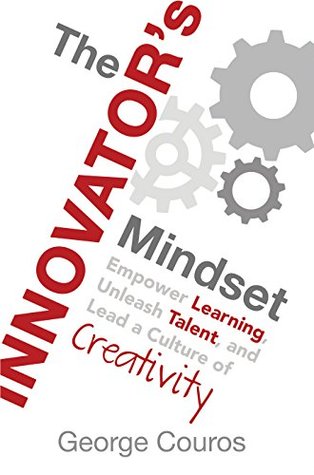More on this book
Community
Kindle Notes & Highlights
Read between
December 13, 2018 - January 23, 2019
We forget that if students
leave school less curious than when they started, we have failed them.
In reality, you can’t make anyone change; people can only change themselves. What you can do is create the conditions where change
Classroom teachers are those who do great things within their classroom and will do great things with their students. School teachers do all of the above. The difference is school teachers consider every student in the school as their own, no matter if that child is in their grade or subject at the time.
Then there’s another viewpoint, one that realizes our students’ ability to connect with people, anytime and anywhere, creates many new opportunities for learning.
If we’re going to be effective leaders, we must model the behavior and attitudes we seek in our learners—be they students or educators.
Would I want to be a learner in my own classroom?
If we want innovative students, we need to be innovative leaders and educators.
To allow for deeper learning, taking the time to connect and reflect allows learners a better opportunity to really think about and understand what they have learned.
the importance of “crap detection.” He explains, “It’s up to you to sort the accurate bits from the misinfo, disinfo, spam, scams, urban legends, and hoaxes.’Crap
By continually offering opportunities that stretch students in their strengths, they improve their learning skills, as well as their belief in themselves.
What really resonated with me from this point was how ignoring an employee had a more negative effect than focusing on his or her weaknesses.
it often requires pushing others’ thinking and abilities by asking questions and challenging perceptions without micro-managing.
What did work was spending time with people one-on-one and looking at their strengths in teaching.
when we show a genuine interest in those whom we serve and go out of our way to help them become successful in areas about which they are passionate, they are more likely to go above and beyond what is expected.
If educators can’t answer “Why?”, then they will never get to the “How?” and “What?”.
When the evaluator/leader is not strong, the system is ineffective, even detrimental.
If we want to build on the strengths of our students, we need to develop them as learners who explore their passions and talents. For schools to do that, educators will need to unleash that talent and hunger for learning in themselves first.
Fear can make us reluctant, but it doesn’t have to defeat us.
It’s okay to ask questions. Just make sure your questions aren’t really excuses in disguise.
These teachers and educational leaders look at change as an opportunity, not an obstacle, and they constantly ask: “What is best for this learner?”


